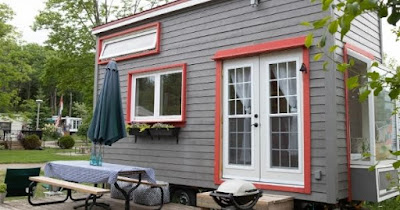Buying a Tiny House
The price of a tiny house can vary wildly, as they can be as cheap as $10,000 and as expensive as $100,000 or more. The first thing you should realize is that the tiny homes on the more expensive end will have customizations that make them more luxurious rather than purely practical. A typical tiny home should run between $35,000–45,000 to provide all necessary amenities and leave room for you to improve and appreciate the value of your tiny home. Additionally, what you should consider when buying a tiny home is whether you want it to be mobile or built on a foundation. Mobility allows some flexibility if you find yourself needing to move around a lot, potentially saving you much of the hassle that comes with moving when you can just take your home with you.
Constructing a Tiny House
While the tiny home trend is on the rise, it’s still a new one. If tiny homes in your area are slim pickings, you can still construct a tiny home of your own. This option might sound like an absolute nightmare, but you should consider it an opportunity to customize your tiny home to your liking, thanks to prefabrication. A common misconception is that, because it’s cheaper, prefabrication means low-quality. The modularity of prefabrication allows you to use quality materials, but since it’s so easy to construct and put together, you can still save money in other areas. Namely, it reduces labor costs and shortens the time it takes to build your new home.
The Benefits
Aside from being much more affordable, some other benefits include:
- Cheaper and easier maintenance.
- Lower heating and cooling expenses.
- Incredible eco-friendliness.
- An attractive, modern appearance.


